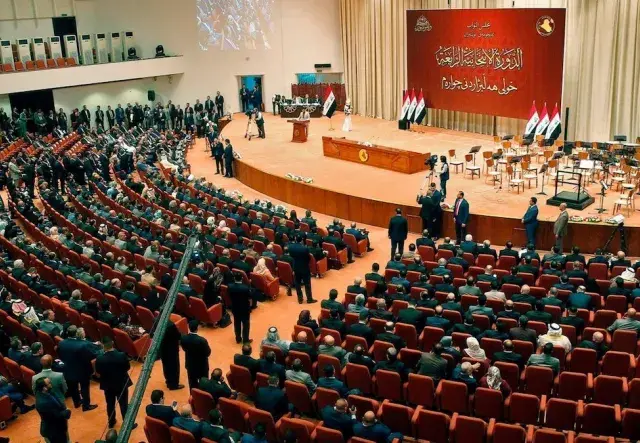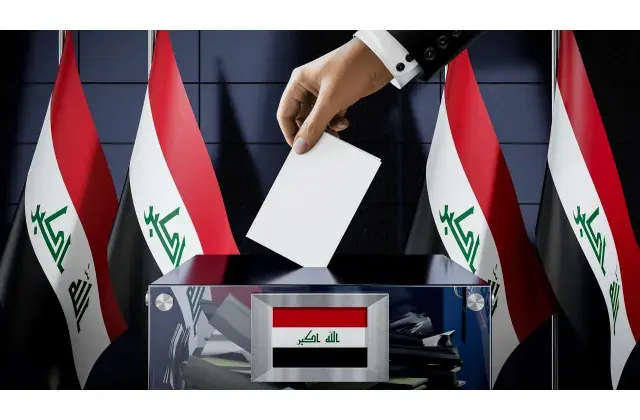Overview of Iraq’s governing system

Iraq’s governance history is long and complex. When viewed in terms of the country’s civilisation transformations and developments, it is possible to discern a multiplicity of styles and forms of governance, from the monarchy of Mesopotamia’s city-states, to the theocracy of the Abbasid Caliphate, the Mamluks of Ottoman Iraq, and British colonial rule under the mandate. Today, Iraq is a multi-party system with executive power held by the Prime Minister of the Council of Ministers and President of Iraq, while legislative power is retained by the Council of Representatives and the Federation Council. Under Iraq’s constitution, Iraq is an Islamic, democratic, and federal parliamentary republic. It is divided into executive, legislative and judicial branches, with additional independent commissions.
The majority of the country’s numerous sects, religious groups and ethnicities have bought into these elections and agreed to representation through Iraq’s formal political channels. Following elections, the Council of Representatives chooses a President whose role is largely ceremonial. The President officially appoints a Prime Minister who has been nominated by the largest bloc within the Parliament. It is the Prime Minister’s mandate to form a government. Parliamentary cycles are four-years and a Prime Minister is limited to two terms of office. Executive authority is bestowed in the Prime Minister, who then appoints the Council of Ministers – the Iraqi cabinet.
Moving from Iraq’s executive framework to its constitutional content, the Iraqi constitution protects the freedom to form and join political parties – with the exception of the pre-2003 Baath Party.
This was reasserted in a 2016 law that extended the ban to Baathist protests and the promotion of Baathist ideas and ideology. The law more generally deems illegal public support for racism, terrorism, sectarianism and other ideas that run against liberal democracy.
Iraq’s success in holding free and fair elections has, to a great extent, been the result of the work of the Independent High Election Commission (IHEC) and, in Kurdistan, the Kurdistan High Electoral and Referendum Commission (IHERC). The IHEC has attracted widespread international support and appears to have relatively strong domestic support.
Since 2005, Iraq has held relatively regular and fair elections. Beginning with the formalization of the Iraqi constitution in October 2005, national and local elections have taken place. Most recently, in December 2023, Iraq held its first local elections in a decade. Approximately 6.6 million voters cast ballots, out of a voting population of 16.1 million. The elections were especially significant given their impact on the governing practices in Iraq’s fifteen provinces, where local elected officials have the power to appoint governors, set budgets and fund local infrastructure. The administrative power and autonomy of the provincial councils reflect Iraq’s decision to decentralize power and grant provincial councils notable financial and legislative clout.
Kurdistan Region of Iraq
Turning now to the Kurdistan Region of Iraq (KRI), the Iraqi constitution bestows autonomous governance to the Kurdistan Regional Government (KRG), the only region to be granted autonomy. In light of this status, the KRG has its own executive, legislative and judicial powers. Under the constitution, the KRG has control over the region’s health services, education, policing and security (the region has its own internal security forces), natural resources, housing, trade, infrastructure, etc. To fund public services, the region is allocated a share of national revenues and resources calculated in relation to its relative size and population, and is permitted its own internal security forces.
Separate from the Iraqi Parliament, the Kurdistan Parliament holds elections every four years nominating 111 members of parliament via popular vote. Currently, 34 seats are held by women, and 11 represent Christian, Turkmen and Armenian minorities. The parliament has a quota of 30 percent female sitting members of parliament. In February 2024, the Federal Supreme Court of Iraq annulled the 11 seats reserved for minority groups, reducing the parliament to 100 seats. In addition, the ruling by the Federal Supreme Court of Iraq gave the IHEC the power to manage Kurdish elections, rather than the previous Kurdistan Regional Electoral Commission.
It is expected the KRI will hold parliamentary elections in June 2024. These have been long delayed due to internal political disputes and parliamentary deadlock, with the last elections held in September 2018.
Iraq’s modern history of democratic elections evinces the importance of electoral legitimacy and democratic voice even under extremely challenging economic, social and political conditions. It is vital that both Iraq and the KRI continue to hold regular elections and retain the independence of electoral bodies to ensure that elections are free and fair. This will guarantee the voice of Iraqi citizens and help shape an engaged and active polity.
This article was written by Achref Chibani and is licensed under CC BY-NC 4.0.




